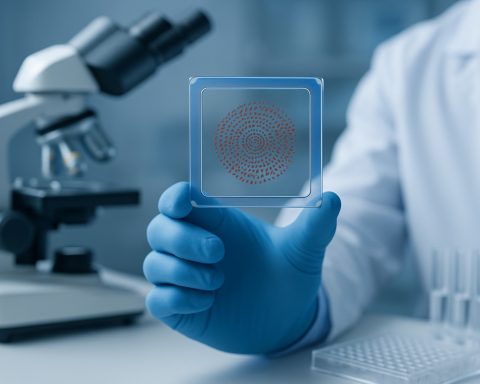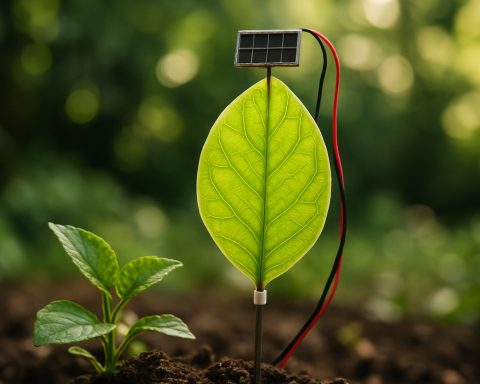- Porsche has launched a transformative pilot project focused on recycling electric vehicle (EV) batteries to create a circular supply model.
- The project addresses the critical shortage of key raw materials—nickel, cobalt, manganese, and lithium—by recycling used battery components.
- The recycling process produces “black mass,” which is further refined to extract high-purity elements for new battery production.
- Porsche aims to produce battery cells with recycled content for future EV models, which aligns with upcoming EU battery directives by 2031.
- Through this initiative, Porsche strengthens its sustainability strategy, supporting environmental responsibility and stable supply chains.
- This project positions Porsche as a leader in sustainable innovation, transforming resource waste into strategic opportunities.
Amidst the accelerating race towards sustainable innovation, Porsche ignites a revolutionary pilot project aimed at transforming the lifecycle of electric vehicle (EV) batteries. This project doesn’t just whisper ambitions; it shouts them from the factory rooftops with a resounding focus on creating a circular supply model that leverages the art of recycling high-voltage battery components.
As the automotive landscape tilts towards electrification, the core challenge unfolds like a modern epic: securing long-term access to essential raw materials like nickel, cobalt, manganese, and lithium. These elemental champions drive the heart of every electric vehicle, but their finite nature commands urgent attention. How does Porsche tackle this issue? With a robust recycling process that tears used batteries apart like paper, spinning them into a “black mass” of future possibilities.
The fruits of this mechanical shredding process manifest as approximately 65 tonnes of raw granulate, sourced from development vehicle batteries—sending ripples of change through the industry. From what appears as humble waste material, Porsche extracts life-sustaining elements, waiting to emerge reborn.
Within the intricate weave of this project, “black mass” is not the end but a transformation in waiting. What began as mere battery refuse undergoes meticulous refinement. High-purity elements are extracted, primed to meet Porsche’s exacting performance benchmarks. The quality of material isn’t just a standard to be met; it’s a pledge to future innovation.
But innovation thrives on vision, and Porsche’s next chapter involves a leap—manufacturing battery cells with recycled content, tested in the whistle and hum of future EV models cruising the reality of open roads. It is a surefooted step towards a circular economy that supports the environment and assures a stable material supply chain amidst geopolitical uncertainties. Particularly with the looming EU battery directives waving their 2031 banner.
This pilot project is more than just technical wizardry; it’s a key pillar in Porsche’s bold sustainability strategy. It signals a pioneering spirit that seeks to embroider environmental responsibility into every stitch of its existence. By setting this spinning wheel of recycling into motion early, Porsche not only aligns itself with eventual regulations but positions itself as a torchbearer in the race towards more sustainable automotive production.
In the quiet corners of this initiative lies a loud message: the alchemy of waste into resource is not merely an ecological necessity—it’s a strategic cornerstone, a beacon leading the way to the future of responsible luxury driving. Porsche’s journey is a testament to what happens when 21st-century challenges meet visionary ambition, transforming every hurdle into an opportunity to accelerate into a cleaner, greener future.
How Porsche is Revolutionizing the Future of Electric Vehicles with Circular Battery Recycling
Overview
Porsche is taking a groundbreaking step toward sustainable innovation by launching a transformative pilot project focused on reversing the traditional lifecycle of electric vehicle (EV) batteries. The company is navigating the challenges of electrification with a strategic recycling process that converts used battery components into a viable resource, known as “black mass,” to forge a more circular supply model.
How Porsche Tackles Battery Material Shortages
As global demand for EVs surges, securing a steady supply of raw materials such as nickel, cobalt, manganese, and lithium becomes crucial. These materials are critical to maintaining the performance and sustainability of electric vehicles. Porsche’s innovative approach involves meticulously shredding used batteries into raw granulate from which high-purity elements are extracted. This not only reduces dependency on newly mined materials but also mitigates environmental impact.
Real-World Applications of Recycled Battery Materials
Porsche’s project articulates a future where recycled materials play a pivotal role in EV production. By achieving a high quality of extracted materials, Porsche ensures that recycled elements meet its rigorous performance benchmarks. The project promises to set a precedent for the automotive industry, leading to the production of new battery cells made from recycled content that will power future EV models.
The Importance of Porsche’s Circular Economy Model
1. Regulatory Compliance: With the European Union’s battery directives on the horizon, aiming for implementation by 2031, Porsche’s initiative aligns with emerging regulations facilitating a green automotive future.
2. Environmental Responsibility: By transforming waste into resources, Porsche is spearheading a movement towards a more sustainable and environmentally responsible automotive industry.
3. Geopolitical Stability: Reducing reliance on raw material imports shields against supply chain disruptions and geopolitical uncertainties.
Market Forecast & Industry Trends
The automotive industry is witnessing a trend towards sustainability-driven innovation, underpinned by recycling and circular economy models. On the back of increasing environmental regulations and consumer demand, experts predict that by 2030, nearly half of all new car sales could be electric, amplifying the need for innovative recycling solutions like Porsche’s.
Key Benefits and Limitations
Pros:
– Resource Efficiency: Maximizing the use of existing materials reduces waste and environmental impact.
– Cost Savings: Utilizing recycled materials can potentially lower the cost of production over time.
– Improved Brand Image: Companies like Porsche leading sustainability initiatives strengthen their reputations among environmentally conscious consumers.
Cons:
– Initial Costs: The technology and infrastructure for such recycling processes require substantial upfront investment.
– Technical Challenges: Ensuring the recycled materials match the quality and performance of newly mined resources is a complex endeavor.
Expert Opinions & Predictions
According to industry experts, Porsche’s approach can influence other automotive giants, accelerating a collective shift to more sustainable practices. As EV adoption rates climb, companies that prioritize sustainability will likely gain a competitive edge.
Actionable Recommendations
For individuals and businesses eager to align with this sustainability trend:
– Support Brands Emphasizing Sustainability: Consumers can choose to support automotive brands investing in sustainable innovation.
– Stay Informed about Industry Developments: Keeping abreast of breakthroughs in recycling can help investors and stakeholders make informed decisions.
– Consider Sustainable Practices: Whether in automotive or other industries, embracing the principles of circular economies can drive positive change.
Quick Tips for Consumers
– Research Before You Buy: Look into the sustainability practices of car manufacturers when considering an EV purchase.
– Advocate for Recycling Initiatives: Encourage local policymakers to support recycling programs that align with circular economy principles.
For more information about Porsche and their sustainability initiatives, visit their official website: Porsche.










